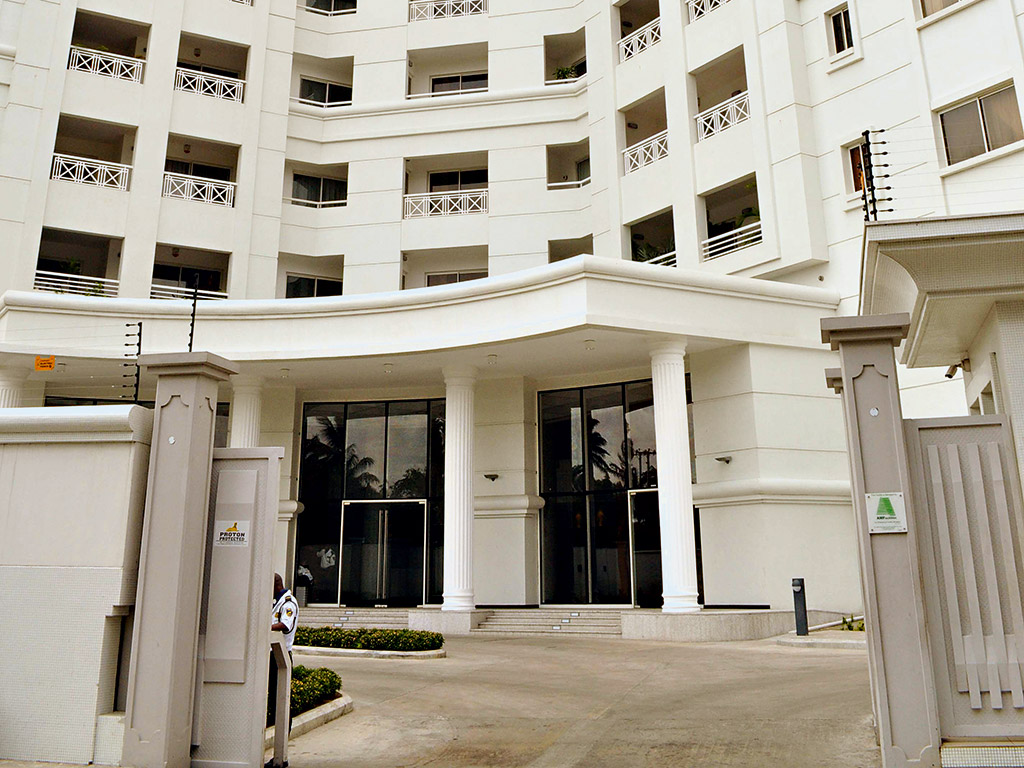
Nigeria’s star is certainly on the rise. In the beginning of the year, Jim O’Neill, the economist who predicted the meteoric rise of the BRICs over a decade ago, selected Nigeria as part of his updated list of countries to watch. And while it is true that the African nation has experienced unprecedented growth, and is developing rapidly, there are still a number of issues that make the local business environment particularly challenging. But a number of Nigerian businesses are learning from these trials and helping to foster an increasingly healthy and interesting marketplace. One such business is Alpha Mead Facilities and Management Services, winner of European CEO’s Best Facilities Management Company, 2014 award. CEO of the firm, Femi Akintunde, told us how he sees more opportunities than difficulties in Nigeria’s burgeoning property sector.

How has facility management in Nigeria changed lately?
Facility management in Nigeria has evolved from being just an ‘add-on’ service offered by property agents and brokers. In the past, every broker on the streets figured out that they could not only help proprietors secure tenants, but also increase their value by providing facility management services. Today we have come to understand that facility management is a profession on its own and it must be undertaken by professionals. We have also seen a gradual transition from the traditional way of living and developing property in Nigeria, where everyone either builds one property for themselves, or an office complex. Now we have communal assets, which are much better than one person investing alone.
All of these factors are making facility management more relevant. Customer awareness in Nigeria is growing as people are becoming more exposed to international businesses and are beginning to demand more services from facility management companies. This means that only companies that have the right systems and competency to deliver these services will succeed.
There are also growing opportunities in the market place, as companies begin to feel that they have options to outsource their non-core services, like facility management, and concentrate on their core business. This used to be a major challenge as not many companies offered this, and so organisations were forced to devote some of their valuable resources to managing these activities.
We are also beginning to see an increase of professionalism, and a growth in the number of people wanting to take up the job of facility manager. But now we can see people with engineering or communications background seek out this profession, bringing more diversity to the industry, as well as fresh ideas and strategies.
What are the major challenges of running a business in Nigeria?
In a country like Nigeria, challenges also create opportunities to separate the good companies from the less professional ones. It also raises the bar for mediocre organisations because it means that if it does not have high standards and processes in place it will not be able to overcome challenges inherent in the industry.
Turnover is almost 100 times what it was when we started
The cost of funding in Nigeria is far higher than in any country in the western world. The costs of funds can be 25 to 30 percent per year here, and that puts a lot of pressure on businesses, because you have to procure resources and execute jobs before your clients pay you, and by borrowing funds from banks, companies end up decreasing their margins significantly. Costs soar, and often have to be passed on to clients. Many clients resist this and sometimes even decline to pay for the services, which have cost the service provider money.
We also have a shortage of skilled workers. Education in Nigeria has not been improving at the same pace as the economy, so manpower has become an issue for most major organisations. A solution for that has been to hire people straight from school or from other parts of the industry and offer them training, but it costs a lot of money to train those people. And this also puts businesses in a difficult situation: they do not want to train workers and then not be able to retain them. It is a catch-22 situation.
Nigeria also faces a problem of lacking public infrastructure. Electricity, for instance, is under-generated. Total electricity today is under 4,000mW for a population of over 170 million people. Compare this with South Africa – which provides up to 30,000mW with a population of about 30 million – and you start to see the problem. This has affected a lot of Nigerian businesses and hindered the industrial and economic development of the country. Recently, the power sector has been privatised and we expect to start seeing some improvement coming as a result of that strategic shift.
We also have a high-risk environment in terms of legal structure. It is not that the legal system is not there – there is protection. But the structure and efficiency need to improve. Taking cases to court here is a very long process, and it is very bureaucratic.
How has AMFacilities changed since its establishment?
Alpha Mead has changed significantly from the time it was founded in the sense that our vision has always been to be the biggest and best facility management company in Nigeria, and to spread our services all over the world.
We started in 2007 as a four-man team, but today our expansion across the region has also been significant – within Nigeria and 13 other countries.
Financially, the company has also significantly improved. Turnover is almost 100 times what it was when we started. We have quite a number of locations and have been able to spread our operations across industries in this time. We are most active in the oil and gas industry, but also operate in telecommunications, banking and more. Our profitability has also increased, and is multiplying almost every year. This is clear evidence of how well we have managed our business over time.
But the things that define us as a good company and the best in the industry? The quality and efficiency of our management system, and the strategies we deploy to deliver our services. This has transformed us into a company people want to work with and for, and therefore we attract very good employees and customers.
How do you see AMFacilities diversifying and expanding in the years ahead?
We have a two-pronged strategy for diversification and expansion. So it is important to keep evolving or you might lose your competitive advantage. We are looking at different options to continue to diversify our business. With this in mind we have started branching out into the security technology business. The new subsidiary is looking at ways to improve the security of the facilities that we manage.
We have also diversified into real estate development, because we found that many of the properties we manage had been developed to substandard levels, so maintenance costs were very high and inefficient. So we decided to develop this business and build our own properties to a high standard so that we can showcase our work. We are building our first development today, and the demand has been such that more than half is already sold out.

